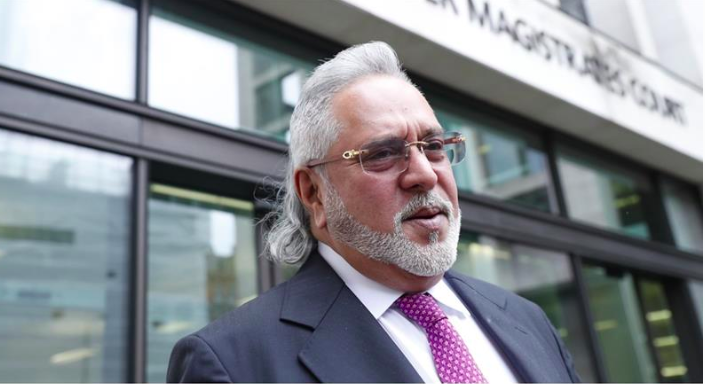Mallya to be Extradited to India
December 12, 2018 | Expert Insights

A UK court has ruled that Indian business tycoon Vijay Mallya should be extradited to India. Indian investigators have demanded that Mallya, who defaulted on $1 billion in bank loans, be brought back to face charges.
Background
65-year-old Indian businessman Vijay Mallya has been based in the UK since he left India in March 2016. Mallya set up Kingfisher Airlines to cater to India’s premium civil aviation segment in 2005; the 2008 spike in oil prices drove the airline into debt, which amounted to over 13,000 crore rupees.
IDBI Bank funded a bailout for the bank, with Mallya’s company United Breweries Holdings Limited acting as a guarantor in 2014. In 2015, India’s CBI conducted raids on Vijay Mallya’s offices in connection with Rs 950 crore loan provided by IDBI Bank. In March of the next year, he left India for the UK and offered to make payments of up to 10,000 crore rupees shortly after.
Mallya was arrested by Scotland Yard on an extradition warrant in April 2017 and has been out on bail on a bond worth 650,000 pounds. His extradition trial, which opened at the London court on December 4, is aimed at laying out a prima facie case of fraud against the tycoon. It also seeks to prove that there are no "bars to extradition" and that Mallya is assured a fair trial in India over his now-defunct Kingfisher Airlines' alleged default of loans from a consortium of Indian banks.
On 5 December 2018, Mallya offered to pay back to the banks the entire principal loan amount. The offer came hours after Christian James Michel, the alleged middleman in the controversial Rs 3,600 crore AugustaWestland chopper deal, was extradited to India from the United Arab Emirates (UAE).
Since the extradition treaty between the United Kingdom and India became effective in 1993, several key figures have been sought by the government. There are currently five extradition requests pending in UK courts involving the following fugitives: Raymond Varley, Tiger Hanis, Nadeem Saifi, Ravi Sankaran, and Lalit Modi. In the past 26 years, the UK has extradited only one fugitive in 2016, Samirbhai Vinubhai Patel, wanted for the 2002 Gujarat riot cases.
Analysis
On 10 December the London Westminster Magistrates Court ordered for the extradition of the fugitive liquor baron Vijay Mallya to India. Chief Magistrate Judge Emma Arbuthnot found a prima facie case against Vijay Mallya for fraud, conspiracy and money laundering. However, Mallya still has 14 days to appeal against the decision which itself is only recommendatory and has to be then implemented by the Home Secretary who has final authority on the issue. Vijay Mallya had to be proven guilty in the courts of law of the UK for the process of extradition to be initiated between India and UK.
Mallya was allowed to stay in the UK despite India cancelling his passport in April 2016 as under UK’s Immigration Act, 1971, a person can continue to remain in the country even if their passport is revoked as long as their passport was valid when they were granted an entry to the country. In such circumstances, the visa expiry is taken into consideration but as Mallya had a UK residency permit since 1992, he could have remained there for an indefinite period.
Under Article 9 of the Extradition Treaty, 1993 signed between the UK and India several grounds are listed as a defence against extradition: punishment on account of race, religion, nationality or political opinion in the home country, accusations not being made in good faith in the interests of justice could stand as a ground for the refusal of extradition. Mallya’s lawyers have used this language to his advantage, arguing that Mallya was subjected to ‘media trials’, that his inability was due to a “genuine business failure” and that there was a risk of infringement of his human rights in Indian prisons due to their dilapidated state.
Counterpoint
India has caught some ground with the enactment of the Fugitive Economic Offenders Act, 2018 through which all the assets of an absconder like Mallya, which have or not been attached by the Enforcement Directorate under the Prevention of Money Laundering Act (PMLA), can be immediately confiscated.
Assessment
Our assessment is that laws such as the Immigration Act need more clarity to prevent an economic offender from seeking refuge in the country, in order to resolve the abuse of the process of law in the UK. We believe that while India managed to rebut the claims of lack of infrastructure in the Mallya case, in the long run, the country needs to invest in the development of the criminal justice system and infrastructure so that such claims cannot be raised.
Read more:








Comments